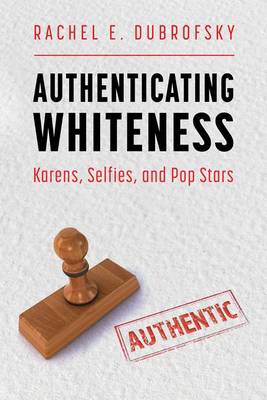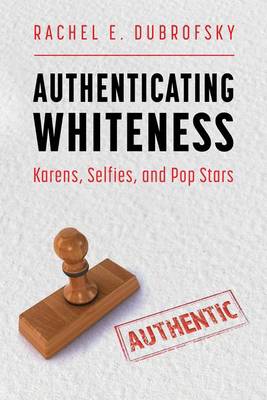
- Afhalen na 1 uur in een winkel met voorraad
- Gratis thuislevering in België vanaf € 30
- Ruim aanbod met 7 miljoen producten
- Afhalen na 1 uur in een winkel met voorraad
- Gratis thuislevering in België vanaf € 30
- Ruim aanbod met 7 miljoen producten
Zoeken
€ 138,45
+ 276 punten
Uitvoering
Omschrijving
In Authenticating Whiteness: Karens, Selfies, and Pop Stars, Rachel E. Dubrofsky explores the idea that popular media implicitly portrays whiteness as credible, trustworthy, familiar, and honest, and that this portrayal is normalized and ubiquitous. Whether on television, film, social media, or in the news, white people are constructed as believable and unrehearsed, from the way they talk to how they look and act. Dubrofsky argues that this way of making white people appear authentic is a strategy of whiteness, requiring attentiveness to the context of white supremacy in which the presentations unfold. The volume details how ideas about what is natural, good, and wholesome are reified in media, showing how these values are implicitly racialized. Additionally, the project details how white women are presented as particularly authentic when they seem to lose agency by expressing affect through emotional and bodily displays. The chapters examine a range of popular media--newspaper articles about Donald J. Trump, a selfie taken at Auschwitz, music videos by Miley Cyrus, the television series UnREAL, the infamous video of Amy Cooper calling the police on an innocent Black man, and the documentary Miss Americana--pinpointing patterns that cut across media to explore the implications for the larger culture in which they exist. At its heart, the book asks: Who gets to be authentic? And what are the implications?
Specificaties
Betrokkenen
- Auteur(s):
- Uitgeverij:
Inhoud
- Aantal bladzijden:
- 184
- Taal:
- Engels
- Reeks:
Eigenschappen
- Productcode (EAN):
- 9781496843326
- Verschijningsdatum:
- 29/11/2022
- Uitvoering:
- Hardcover
- Formaat:
- Genaaid
- Afmetingen:
- 152 mm x 229 mm
- Gewicht:
- 439 g

Alleen bij Standaard Boekhandel
+ 276 punten op je klantenkaart van Standaard Boekhandel
Beoordelingen
We publiceren alleen reviews die voldoen aan de voorwaarden voor reviews. Bekijk onze voorwaarden voor reviews.











